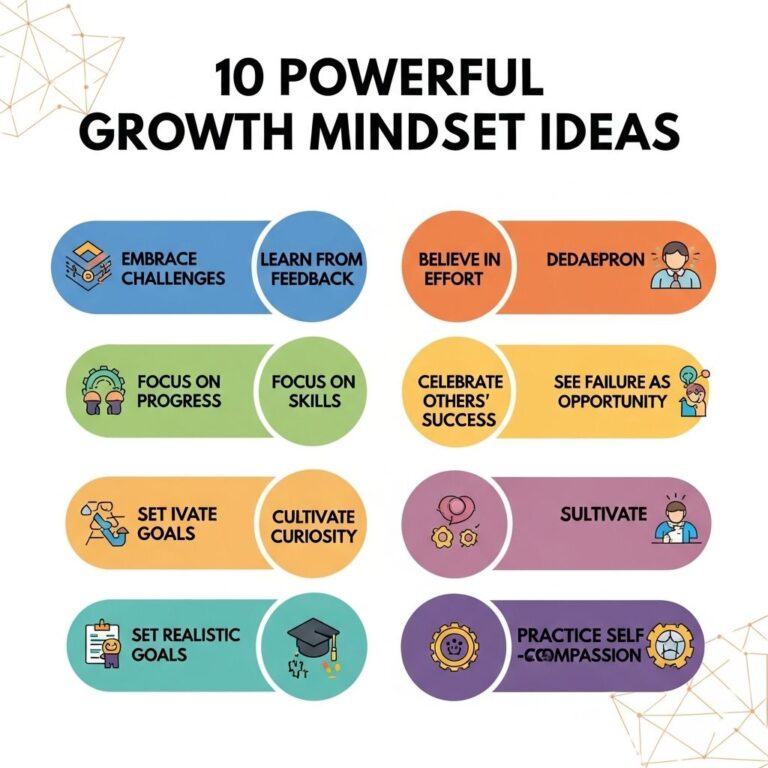In our fast-paced, ever-evolving world, taking a moment to pause and reflect on our daily experiences can be a powerful tool for personal and professional growth. Daily reflection allows individuals to assess their actions, learn from their mistakes, and set intentions that align with their long-term goals. This article delves into the transformative power of daily reflection and offers practical strategies to incorporate it into your daily routine.
Table of Contents
The Importance of Daily Reflection
Daily reflection serves as a critical practice for enhancing self-awareness, cultivating emotional intelligence, and fostering personal development. By engaging in this practice regularly, you can:
- Improve decision-making skills by analyzing past choices and outcomes.
- Enhance emotional regulation by recognizing and understanding your feelings.
- Set clearer intentions for future actions based on previous experiences.
- Strengthen resilience and adaptability in the face of challenges.
Benefits of Daily Reflection
Incorporating daily reflection into your routine can lead to numerous benefits, including:
| Benefit | Description |
|---|---|
| Increased Clarity | Gaining insight into your goals and aspirations. |
| Heightened Awareness | Becoming more attuned to your thoughts and feelings. |
| Enhanced Learning | Turning experiences into lessons that guide future actions. |
| Improved Relationships | Understanding how your actions affect others. |
| Greater Focus | Concentrating on what truly matters to you. |
How to Begin a Daily Reflection Practice
Starting a daily reflection practice can be straightforward. Here’s a step-by-step guide to help you get started:
- Choose a Time: Identify a specific time each day that you can dedicate to reflection. Many people find early mornings or late evenings to be ideal.
- Create a Comfortable Space: Find a quiet, comfortable place where you can sit without distractions.
- Select a Journal or Medium: Decide whether you prefer writing in a physical journal, using a digital platform, or even recording audio reflections.
- Ask the Right Questions: Formulate questions that guide your reflection. Examples include:
- What went well today?
- What challenges did I face, and how did I respond?
- What did I learn about myself?
- How can I improve tomorrow?
Reflection Prompts
Use the following prompts to deepen your reflection:
- What am I grateful for today?
- Who did I connect with, and how did those interactions affect me?
- What actions did I take that aligned with my values?
- What distractions impacted my focus?
Overcoming Obstacles to Reflection
While the benefits of daily reflection are significant, several common obstacles may hinder your practice:
Time Constraints
Many individuals feel they lack time to reflect. However, even a few minutes can be effective. Consider:
- Setting a timer for 5-10 minutes.
- Incorporating reflection into your evening routine, perhaps while winding down for bed.
Lack of Motivation
If you find it challenging to stay motivated, try to:
- Set specific goals for your reflection practice.
- Join or create a reflection group with peers to share experiences.
Self-Criticism
Many people struggle with negative self-talk during reflection. To combat this:
- Focus on growth rather than perfection.
- Celebrate small wins and progress.
Integrating Reflection into Daily Life
For daily reflection to be effective, it should become an integral part of your life. Here are some strategies for integration:
Morning Reflection
Start your day with a few intentional minutes of reflection. This can help set a positive tone for the day. Consider:
- Visualizing your goals.
- Setting intentions for how you want to feel and act throughout the day.
Evening Review
End your day with a review of your experiences. This can help you:
- Identify lessons learned.
- Prepare for tomorrow by focusing on what you want to achieve.
Leveraging Technology for Reflection
In our digital age, there are numerous tools and apps designed to facilitate reflection. Some popular options include:
- Day One: A journaling app that allows users to document their thoughts and experiences.
- Penzu: An online diary that prioritizes privacy and security.
- Reflectly: An AI-driven app that prompts reflection through guided questions.
Benefits of Using Apps
Utilizing technology for reflection can offer several advantages:
- Accessibility: Reflect on the go with your mobile device.
- Organization: Easily categorize and search through past reflections.
- Reminders: Set notifications to prompt reflection at your chosen times.
Conclusion
Daily reflection is a powerful practice that can lead to profound personal and professional growth. By taking the time to evaluate your experiences, learn from them, and set clear intentions, you create a roadmap that guides you toward success. Whether you choose to reflect through journaling, discussions with peers, or leveraging technology, the key is consistency. Start today, and witness the transformative effects of daily reflection on your life.
FAQ
What is daily reflection and why is it important for success?
Daily reflection involves taking time each day to think about your experiences, decisions, and emotions. It’s important for success as it helps you to learn from your actions, identify areas for improvement, and set clear goals.
How can I incorporate daily reflection into my routine?
You can incorporate daily reflection by setting aside 10-15 minutes each evening to journal about your day, noting what went well, what didn’t, and what you learned. This can also be done through meditation or quiet contemplation.
What are some effective techniques for daily reflection?
Effective techniques include journaling, asking yourself reflective questions, practicing mindfulness, and using prompts such as ‘What did I learn today?’ or ‘How did I overcome challenges?’.
Can daily reflection improve my decision-making skills?
Yes, daily reflection can significantly enhance your decision-making skills by allowing you to analyze past choices, understand your thought processes, and apply insights to future situations.
How does daily reflection contribute to personal growth?
Daily reflection contributes to personal growth by fostering self-awareness, encouraging accountability, and promoting a mindset of continuous learning and adaptation.
What tools can I use for daily reflection?
You can use various tools for daily reflection such as journals, apps designed for reflection and mindfulness, or even guided meditation resources to help structure your thinking.








